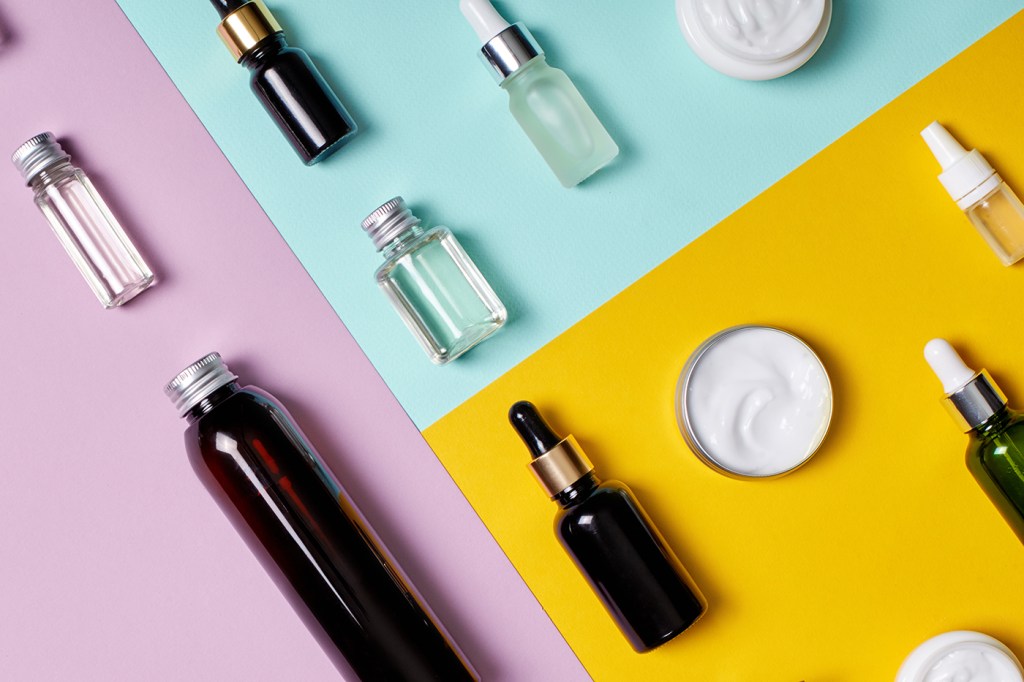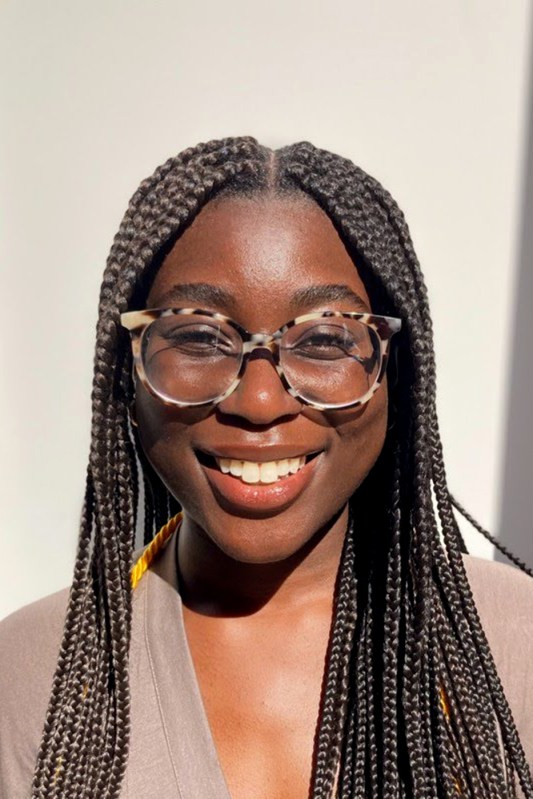R&D lab established by a Northeastern graduate champions skincare products for consumers with darker skin tones
AJ Addae, a chemist, clinical researcher and entrepreneur, is creating skincare products sold in Sephora, Ulta and Target.

As a consumer of skincare and beauty products, AJ Addae knows firsthand the limited selection of brands that cater to women with melanin-rich skin.
“We have makeup brands that are specifically geared toward darker skin, but we also don’t really see this as much with just plain skincare,” says Addae, a chemist, clinical researcher and entrepreneur, who received a bachelor’s degree in biology from Northeastern University in 2020.
There are obvious inclusivity gaps, she says, caused not by the lack of darker-skinned consumers but by an inadequate number of people of color recruited for the research and development process, shortage of data on dark skin and not nearly enough clinical testing with diverse skin tones.
Addae is working on closing these gaps in R&D at her own B2B innovative lab — SULA LABS — that creates and tests skincare products for Black-owned beauty brands and melanin-rich consumers.

She was recently recognized for her work and entrepreneurism with a 2024 Innovator Award from Northeastern’s Women Who Empower in undergraduate alumnae category.
Products formulated at SULA LABS are sold at such stores as Sephora, Ulta and Target.
“We’ve definitely cemented our expertise in the industry as product developers,” Addae says. “However, our business model focuses not just on product development, but also on clinical testing across diverse skin tones and with diverse protocols as well as developing ingredients that are tested for and embraced by consumers of color.”
Addae says she didn’t seek out to build a business, but as a scientist, she wanted to solve a problem. After one client asked her to help formulate a product line, she says, more followed.
“Without my doing, one client turned into two, two turned into five,” she says. “And that just grew very organically, and it’s now what we know as SULA LABS.”
Today, SULA LABS has a team of six people, a wet lab space in Los Angeles, and a warehouse for raw materials in Dallas, Addae’s home city.
As a business owner, she now splits her days between doing the lab work and being a CEO.
“Along the way, I have definitely learned a lot about business, about scaling,” she says.
While at Northeastern, Addae did a co-op with a skincare startup. She saw the impact, she says, of the research and development on the skincare industry. She also did research related to sun care solutions at the Biomaterials Design Lab at Northeastern.
“I realized that skincare is a very unique space where you get to marry a lot of creativity and art with science as well as create social change through science,” Addae says.
Right after graduation she started her first full-time job as a clinical researcher and formulator in a medical grade skincare laboratory and maintained it for the next year and a half. That experience, Addae says, allowed her to take on that first private client.
As a young scientist, Addae received a small grant from Vanguard STEM, a community and program founded by female Black scientists that prompted applicants to pick a project that married STEM and social justice. Addae showed with her research project how being able to invest in R&D in darker-skinned consumers actually affects end users.
“It proved to me why I saw certain limitations in my beauty journey,” Addae says about the result of her research.
Modern skincare R&D focuses on age demographics (for anti-aging products, for example) and gender segmentation of products for men and women, she says, but does not account enough for people with diverse skin tones.
Featured Posts
“We also see this with hair care,” Addae says. “Solving these problems could make a large-scale impact on the beauty industry.”
Her lab focuses on three areas — product development, testing and ingredients.
Developing products, SULA LABS strives to use ingredients that are not only safe and efficient for darker skin tones, but also look aesthetically good on skin. For example, sunscreens with metal oxides leave an undesirable white cast on skin that deters sunscreen usage by consumers, and Addae has been working on solving this problem.
She is also advocating for even distribution of lighter and darker skin tones used in consumer and clinical testing of products. SULA LABS testing contributes more data about darker skin tones.
As for ingredients, there are a lot of ingredients on the cosmetic market that show great efficacy, Addae says; however, these ingredients were not tested on a whole subset of people. That may have implications for the data outcomes and how it can be used.
“We know that vitamin C works really well as a hyperpigmentation-oriented ingredient,” Addae says. “But that’s not the efficacy shown on darker skin tones. Vitamin C is more likely to visibly alleviate hyperpigmentation at a quicker rate on lighter skin.”
Maybe, she says, it is possible to develop a whole class of ingredients effective on darker skin.
Addae joined Women Who Empower recently, she says, after seeing that there were so many scientists and also a unique subset of people focusing on skincare.
“I thought that perhaps by joining this community, I could also help share resources and product development that would be helpful,” she says.
“I’m very interested in and excited for the future of women-led businesses, because people don’t know that women are really coming, and have been here always, and have insanely cool solutions,” Addae says. “I think this community is a huge testament to that.”










